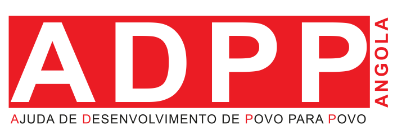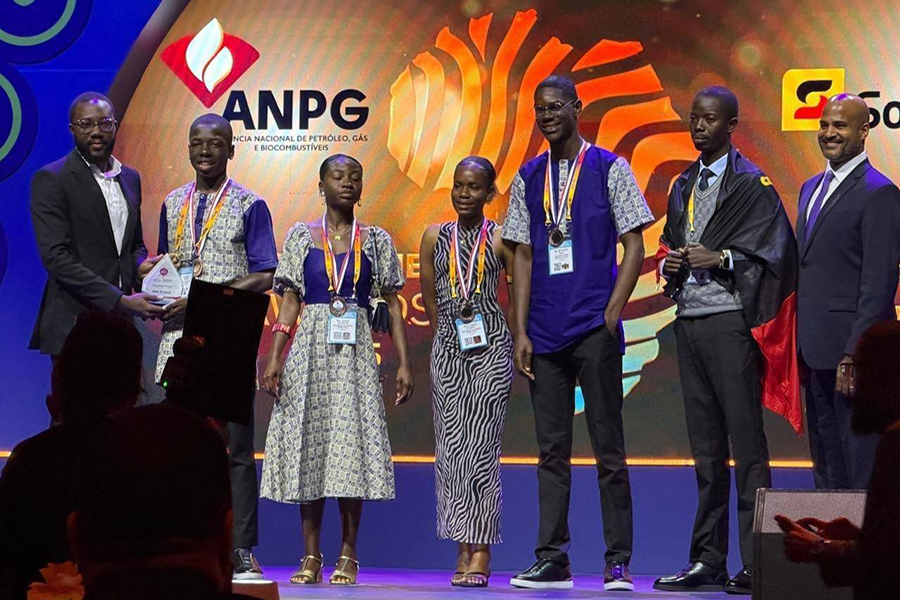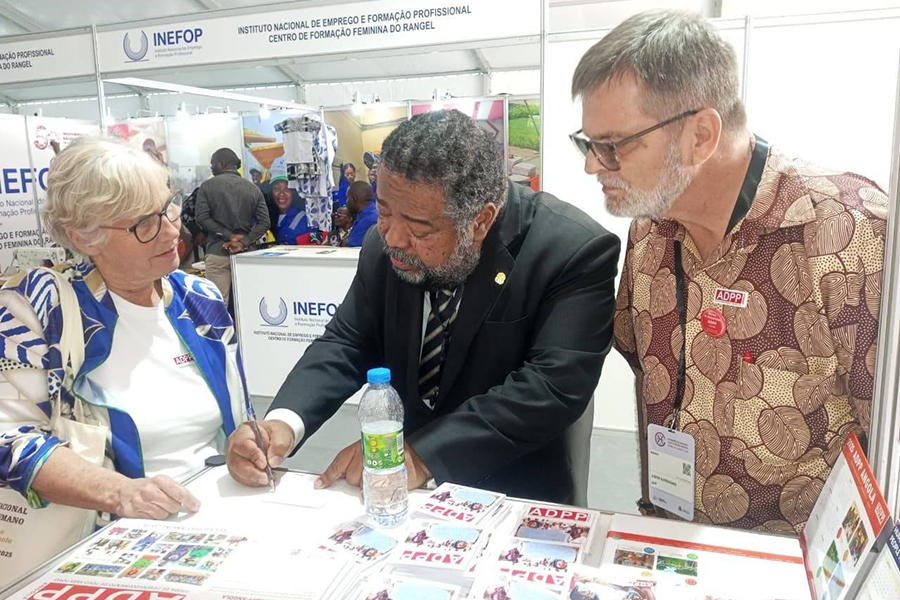
From October 1st to 3rd, ADPP Angola and Humana People to People took part in the Pan-African Conference on Teacher Training, Professionalization and Development (PACTED 2025), held at the African Union Headquarters in Addis Ababa, Ethiopia, represented by Luís Cahisso.
Organized by the African Union Commission, in partnership with the European Union, UNESCO, and AFTRA, the event brought together representatives from several African countries to discuss successes and challenges in teacher training, professional development, and valorization across the continent. Among the key topics were teacher shortages—estimated at around 15 million in Sub-Saharan Africa—learning poverty, the low appreciation of the teaching profession, delays in digital transition, and teachers’ working conditions.
During the conference, Luís Cahisso presented ADPP Angola’s 30 years of experience in training teachers for rural areas. He highlighted the transformative pedagogy of the ADPP Teacher Training Colleges, which combines local recruitment and training of teachers, practical and student-centered learning, direct engagement with communities, and a boarding school model that strengthens social responsibility.
The methodology drew great interest among participants, sparking new reflections on the importance of investing in contextualized models that encourage teachers to remain in rural areas, where about 70% of Africa’s population lives.
The conference also provided a platform for the exchange of experiences between countries and institutions. Luís Cahisso attended the launch of the new Continental Education Strategy for Africa (CESA 2026–2035), which aligns closely with the work of ADPP Teacher Training Colleges and other Humana People to People schools in Mozambique, Malawi, Zambia, Guinea-Bissau, and the Democratic Republic of the Congo.
PACTED 2025, World Teachers’ Day, and the African Union Continental Teacher Awards (AUCTA 2025) jointly celebrated the essential role of teachers in achieving the educational goals of Agenda 2063 and in advancing sustainable development across Africa.
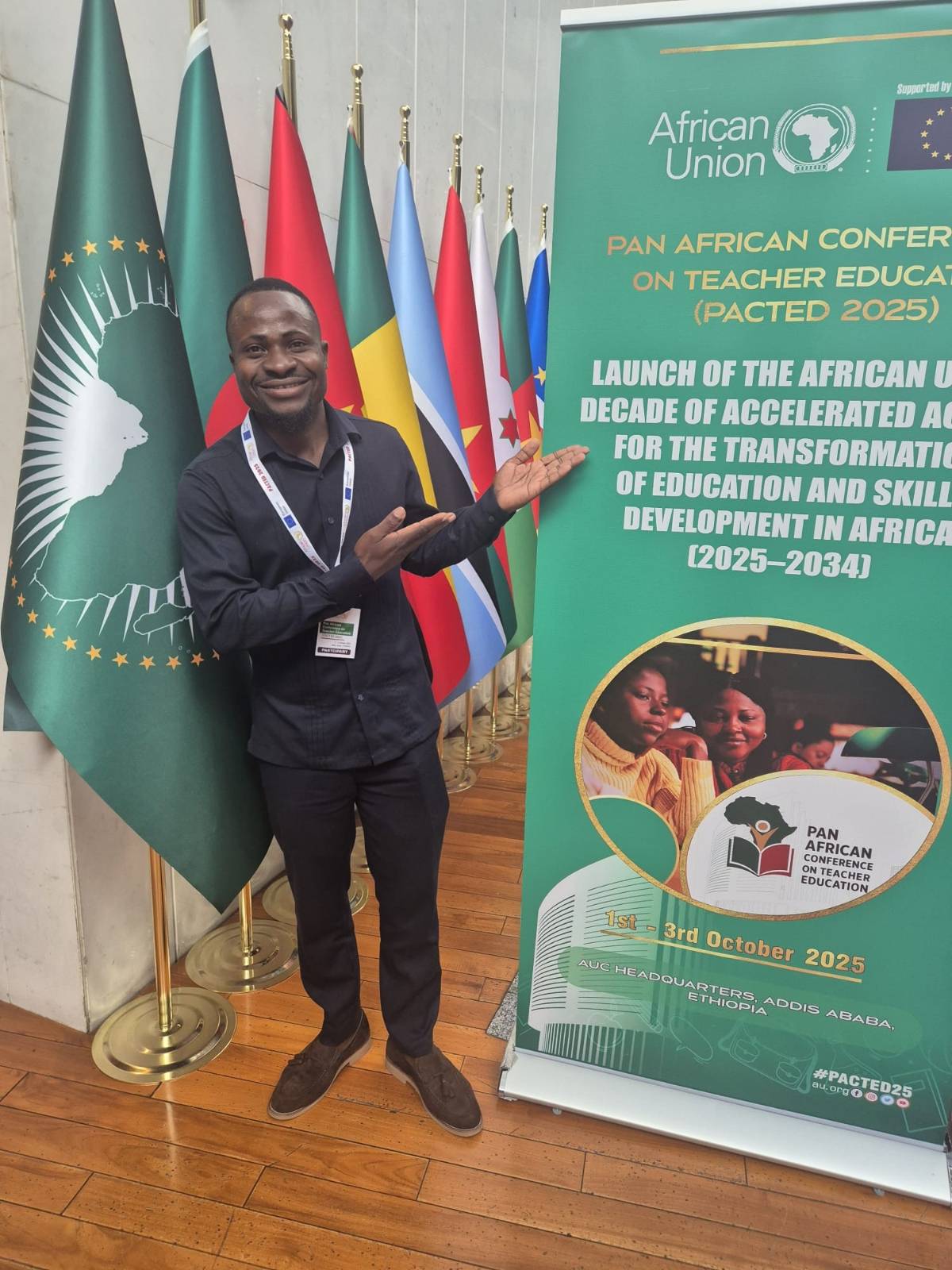
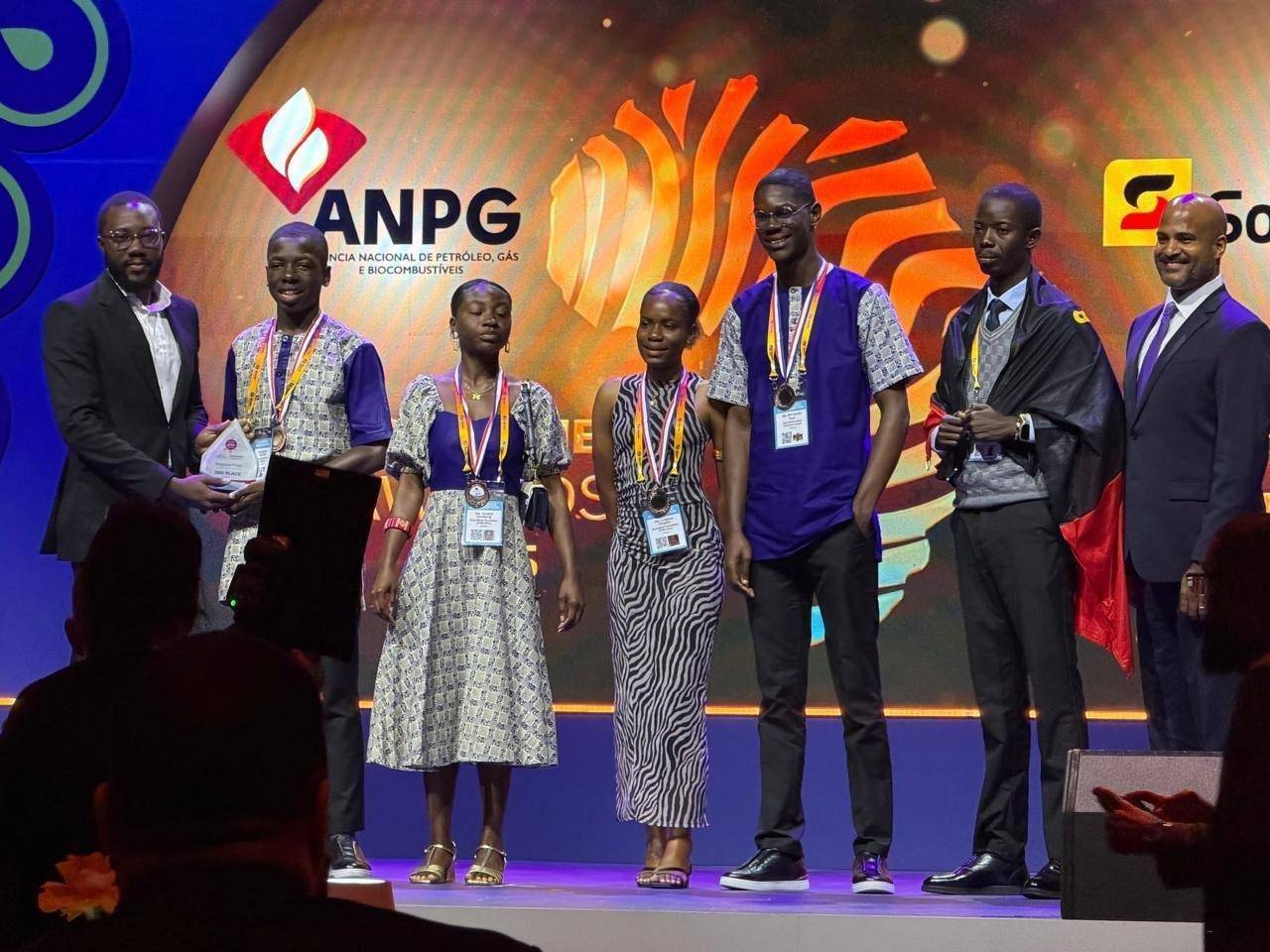
A group of students from Liceu 22 de Novembro, in Luanda, represented Angola at the STEM Africa 2025 Competition, held on 29 September 2025 in Cape Town, South Africa. The participation was accompanied by a teacher and a representative from ADPP Angola.
STEM Africa is an initiative of the ExxonMobil Foundation and JA Africa, supported by the Ministry of Educationand implemented by ADPP Angola. Its goal is to prepare young people for the future of work through the application of Science, Technology, Engineering, and Mathematics (STEM) to solve social problems.
In Cape Town, the team presented the project “Solid Waste Collection in the Drainage Channel of the Korea Zone, Samba Municipality.” The main innovation was the creation of an electromechanical elevator powered by solar energy, designed to improve waste management in urban areas.
The final results placed Angola in 3rd place, behind Namibia (1st) and Nigeria (2nd), with Mozambique in 4th position.
During the presentation, an investor expressed interest in the project, recognizing its potential for future development and practical application.
It is worth noting that in 2024, Angola won 1st place in the same competition through a team of 10th-grade students from the Telecommunications Institute (ITEL), demonstrating the continuity and excellence of Angolan participation in this initiative.
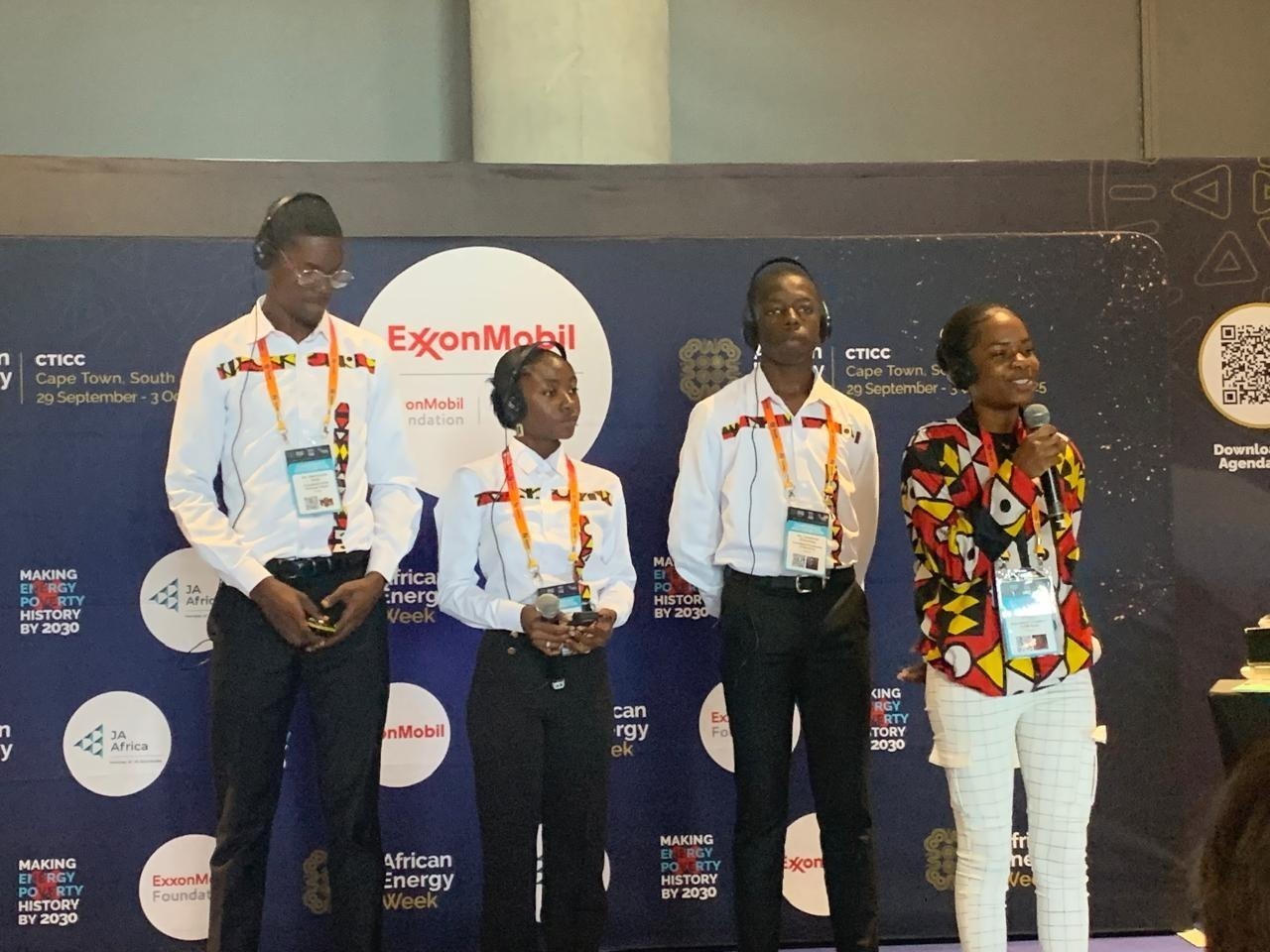
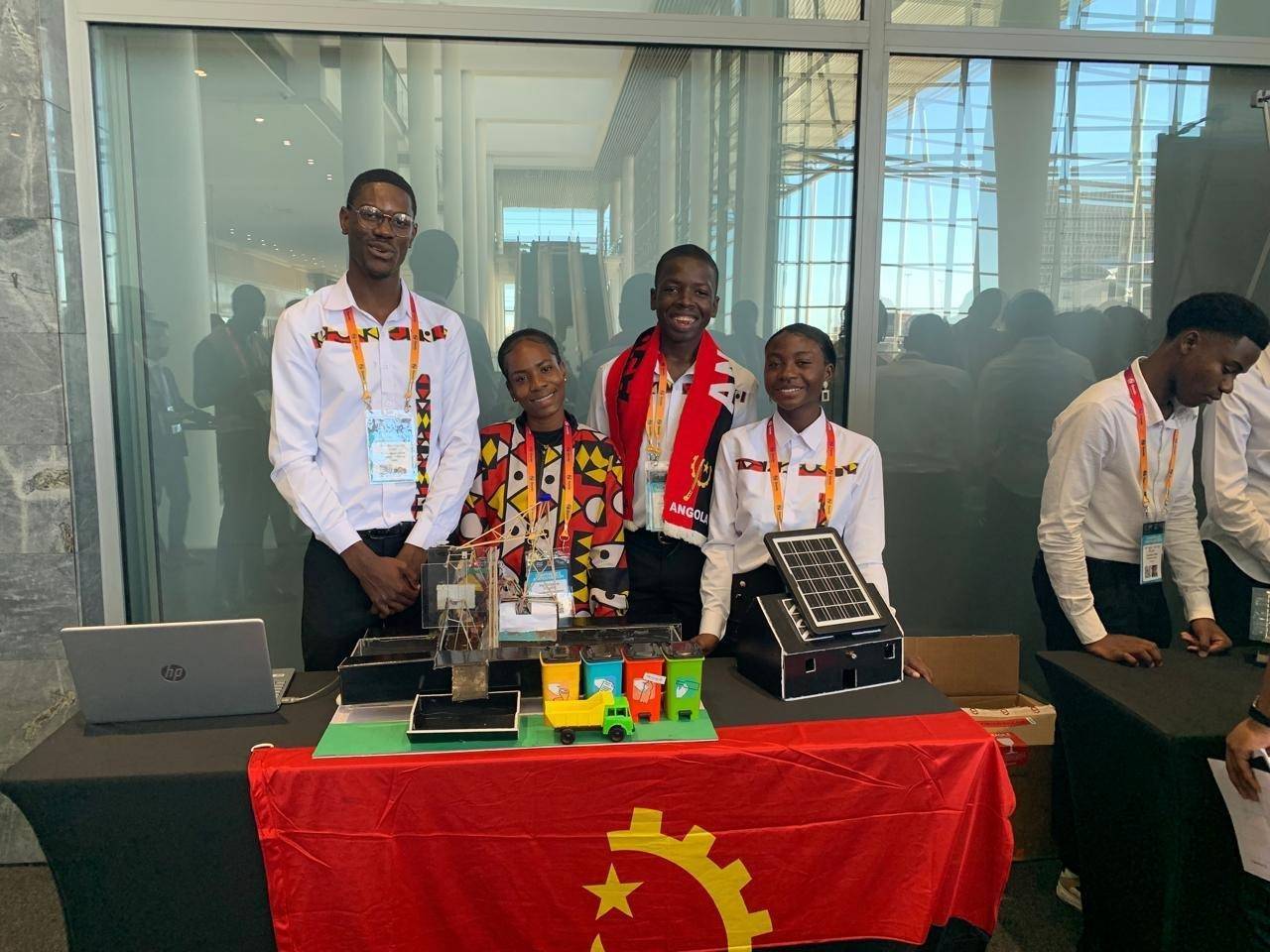
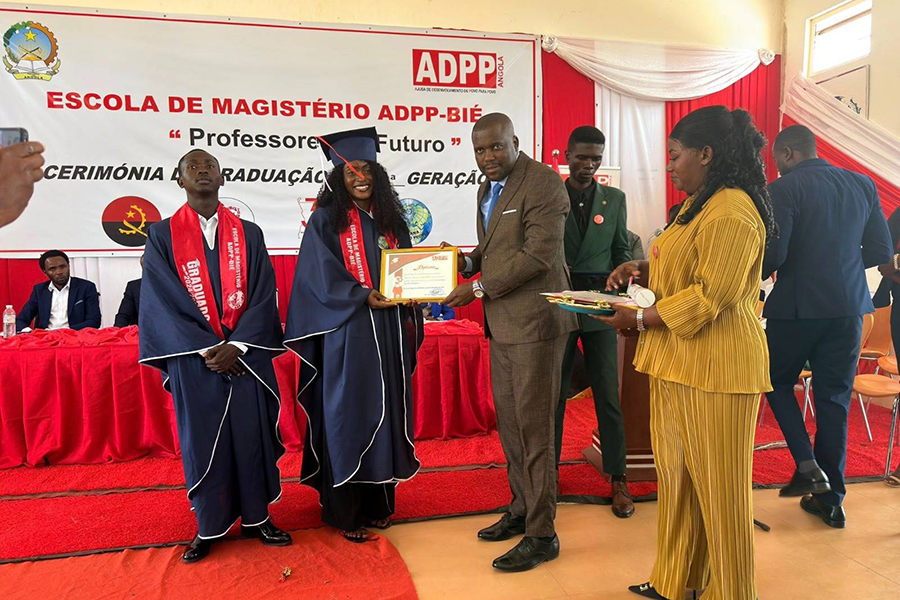
The 15 ADPP Teacher Training schools, located across 14 provinces of Angola, celebrated this month the graduation of the teams that began their studies in 2021.
The teacher training program lasts four years in a boarding school system, with the final year dedicated to a practicum in rural primary schools. The model combines theory with practice, preparing committed and innovative professionals equipped to face the challenges of teaching in local communities. Throughout their training, students deepen their knowledge of primary school subjects while developing essential skills for both the classroom and life.
This year, 694 new teachers have completed their training for rural primary education, 40% of whom are women. These educators will strengthen the quality of education in rural areas of the country, contributing to ensuring that more children have access to inclusive and quality education.
In 2025, we celebrate 30 years of training primary school teachers in our colleges, with a total of 16,519 teachers graduated since 1995. Many graduates join the Graduated Teachers’ Network, continuing their collaboration after completing their studies. These resilient educators overcome resource challenges, innovate with local materials, and work closely with parents to improve education in hard-to-reach communities.
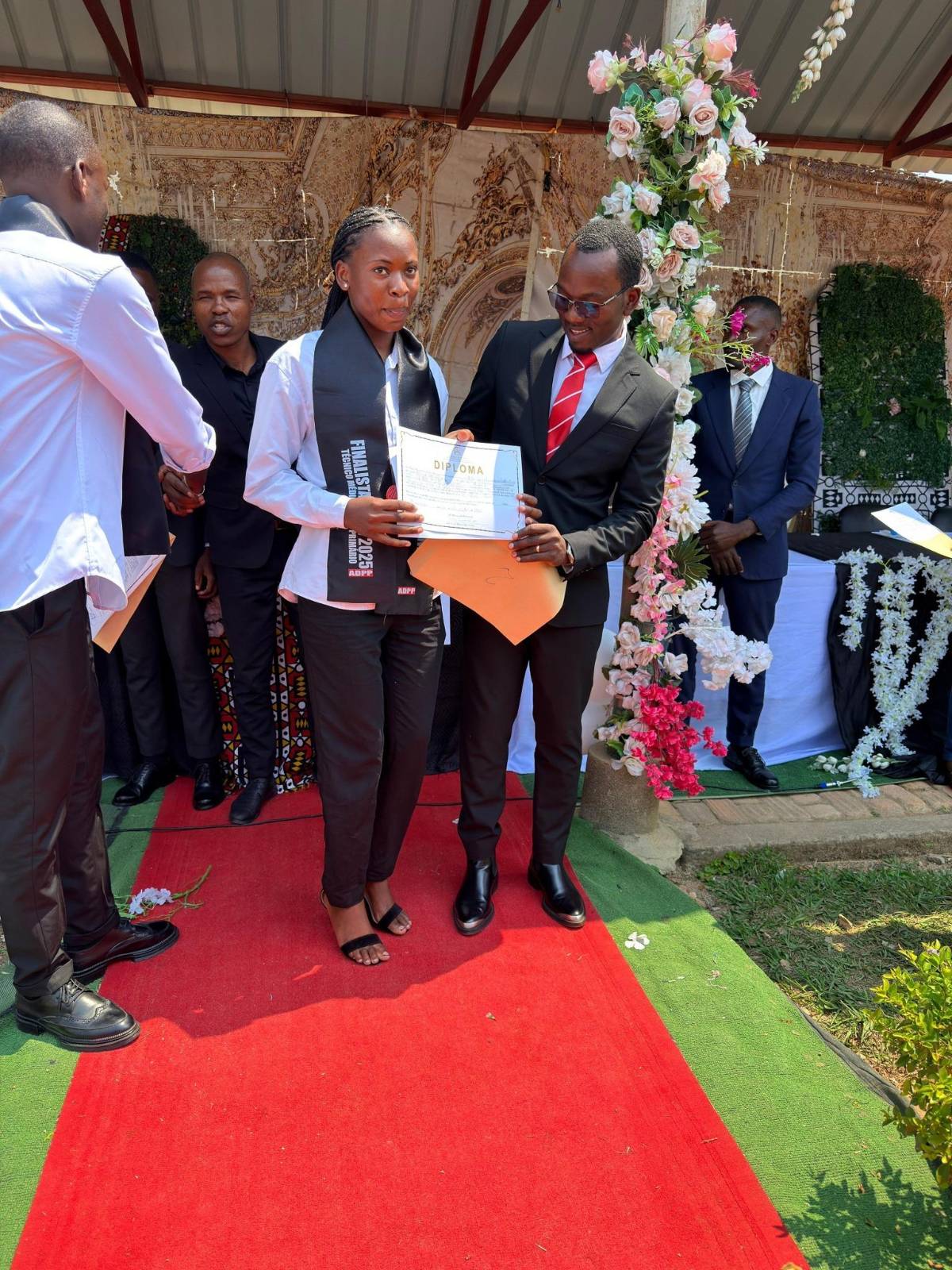
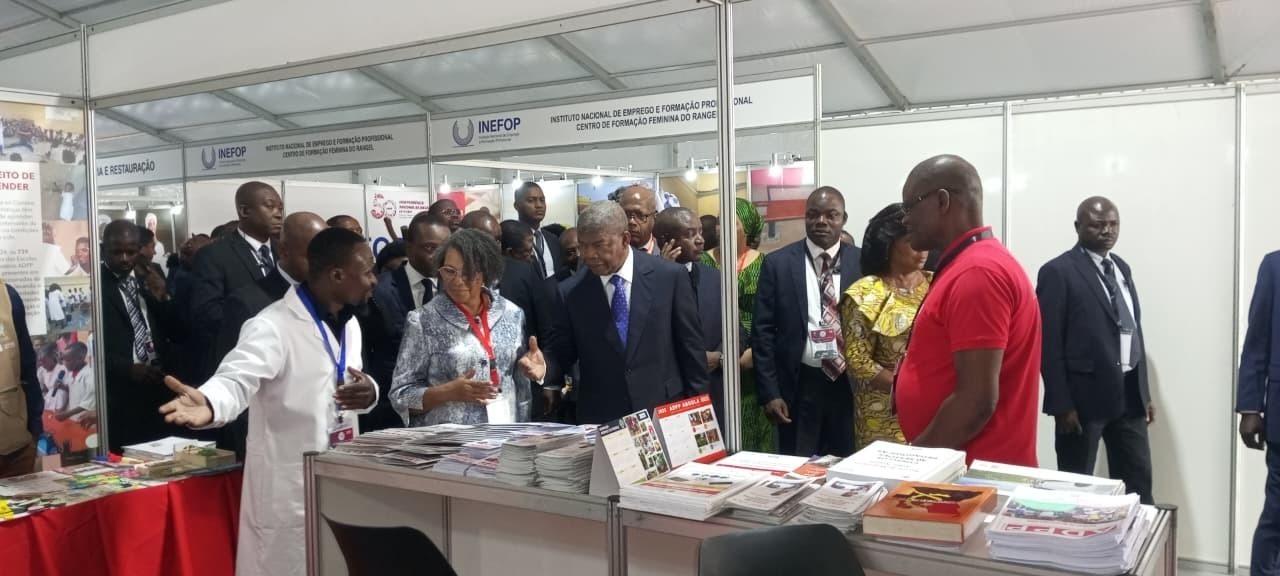
ADPP Angola recently took part in the 1st edition of the National #Educar Fair and the National Conference on Human Capital, held in Luanda as part of the celebrations of the 50th anniversary of National Independence. The event brought together various entities connected to education and human capital and was promoted by the Government of Angola.
At its stand, ADPP showcased teaching materials used in schools and social projects, highlighting innovative pedagogical practices focused on inclusion, experiential learning, and community development. The exhibition generated significant interest among visitors and partners.
ADPP’s space was visited by several government officials, including His Excellency the President of the Republic, João Manuel Gonçalves Lourenço, accompanied by the First Lady, Ana Dias Lourenço, the Minister of Education, Luísa Grilo, and other members of the Government.
On this occasion, the President of the Republic acknowledged ADPP’s contribution to strengthening the education system in Angola, emphasizing the organization’s importance in shaping citizens and fostering community development.
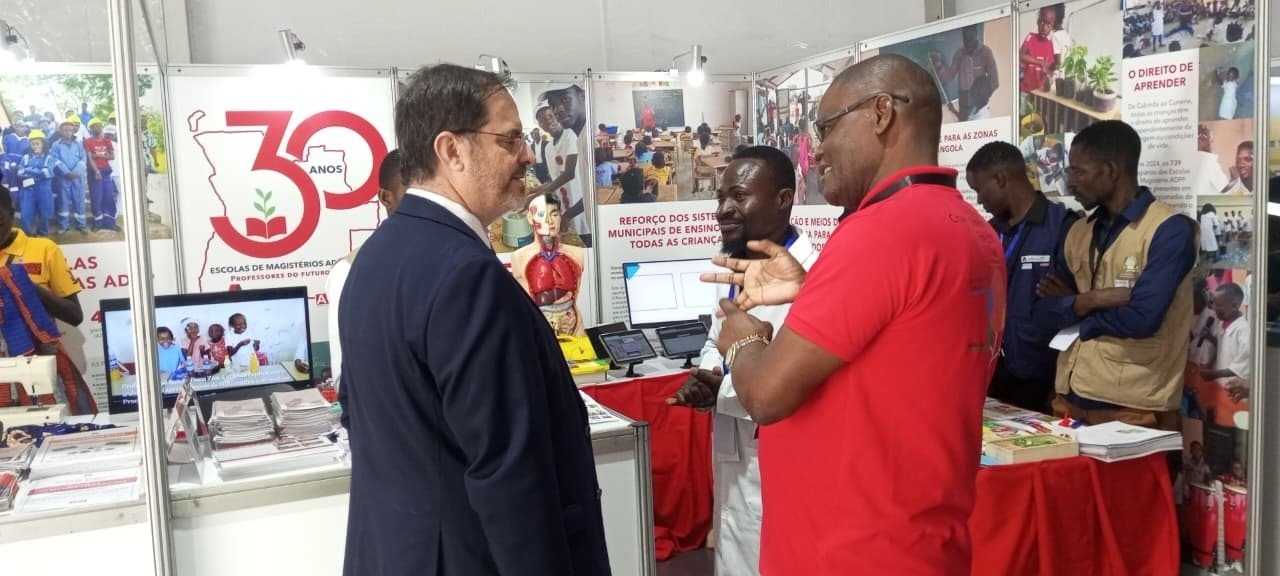
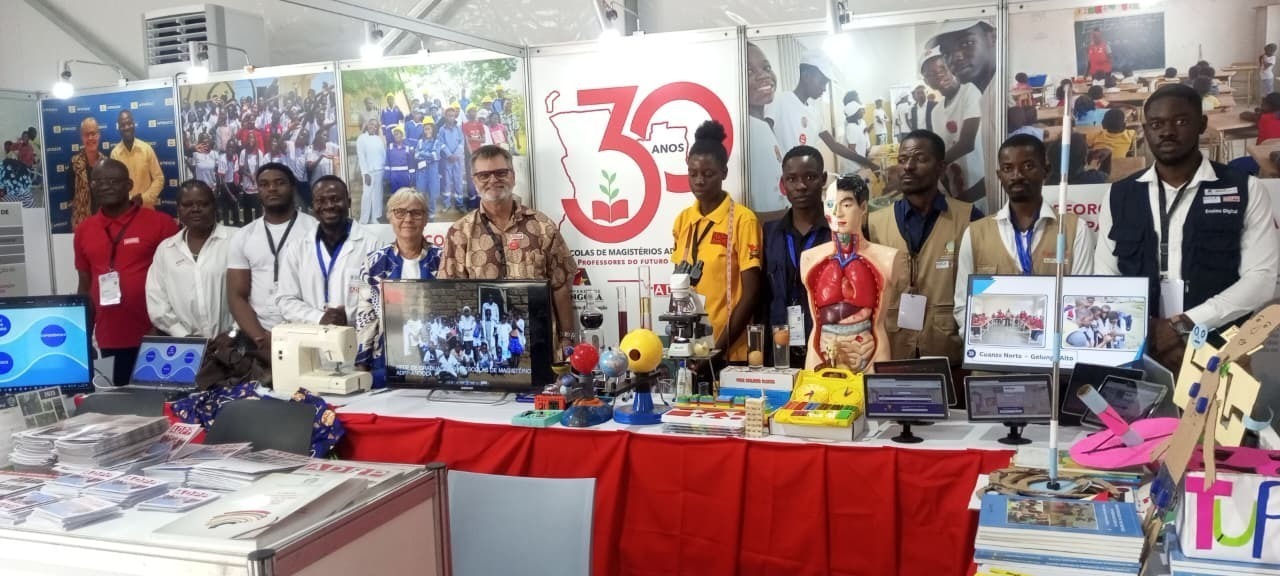
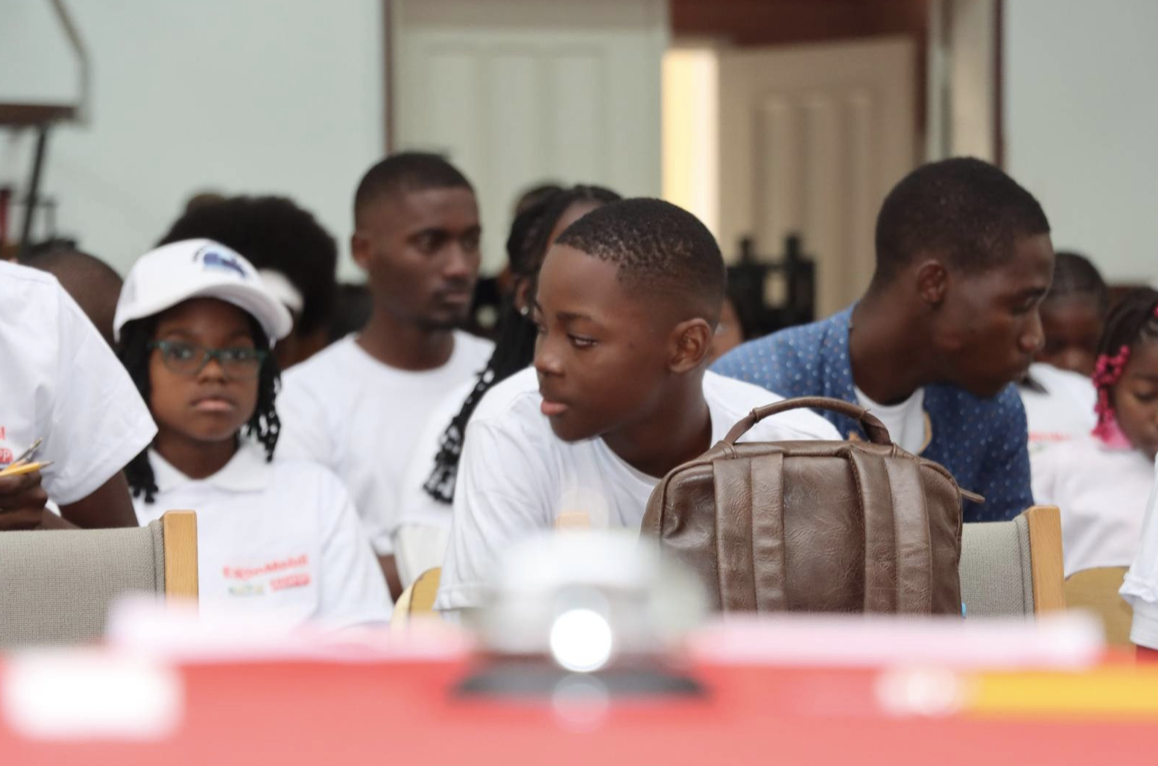
The Innovation Camp of the STEM Angola 2025 Project, promoted by ADPP in partnership with the Ministry of Education and INFQE, with funding from Block 15 (ExxonMobil Angola), marked a decisive step in strengthening teachers’ technical and professional skills and in advancing students’ scientific development in Angola.
The event took place in Luanda and brought together 66 students from primary, lower, and upper secondary education, representing eight provinces. On July 17, the delegations visited the Luanda Science Centre, deepening the link between theory and practice. The following day, competitions were held at the Luanda Industrial Polytechnic Institute (Macarenco), in the presence of institutional representatives, partners, and members of the educational community.
The STEM Project – focused on the areas of Science, Technology, Engineering, and Mathematics – has been promoting school clubs and local competitions, culminating in this national gathering that celebrates students’ talent, creativity, and investigative spirit.
In the Projects category, Bié Province won first place with 15 points, followed by Benguela (14.5) and Huambo (14). In the Science competitions, the winners were Janete (Uíge), Domingas (Bié), and Elvio (Huambo), representing Primary, Lower Secondary, and Upper Secondary education, respectively.
The winners received STEM medals, computers, tablets, and smartphones. All participants were awarded t-shirts, caps, and, soon, certificates and diplomas of merit.
STEM Angola continues to establish itself as a key pillar in transforming education in the country, promoting innovation, critical thinking, and creative solutions to the challenges of the contemporary world.


